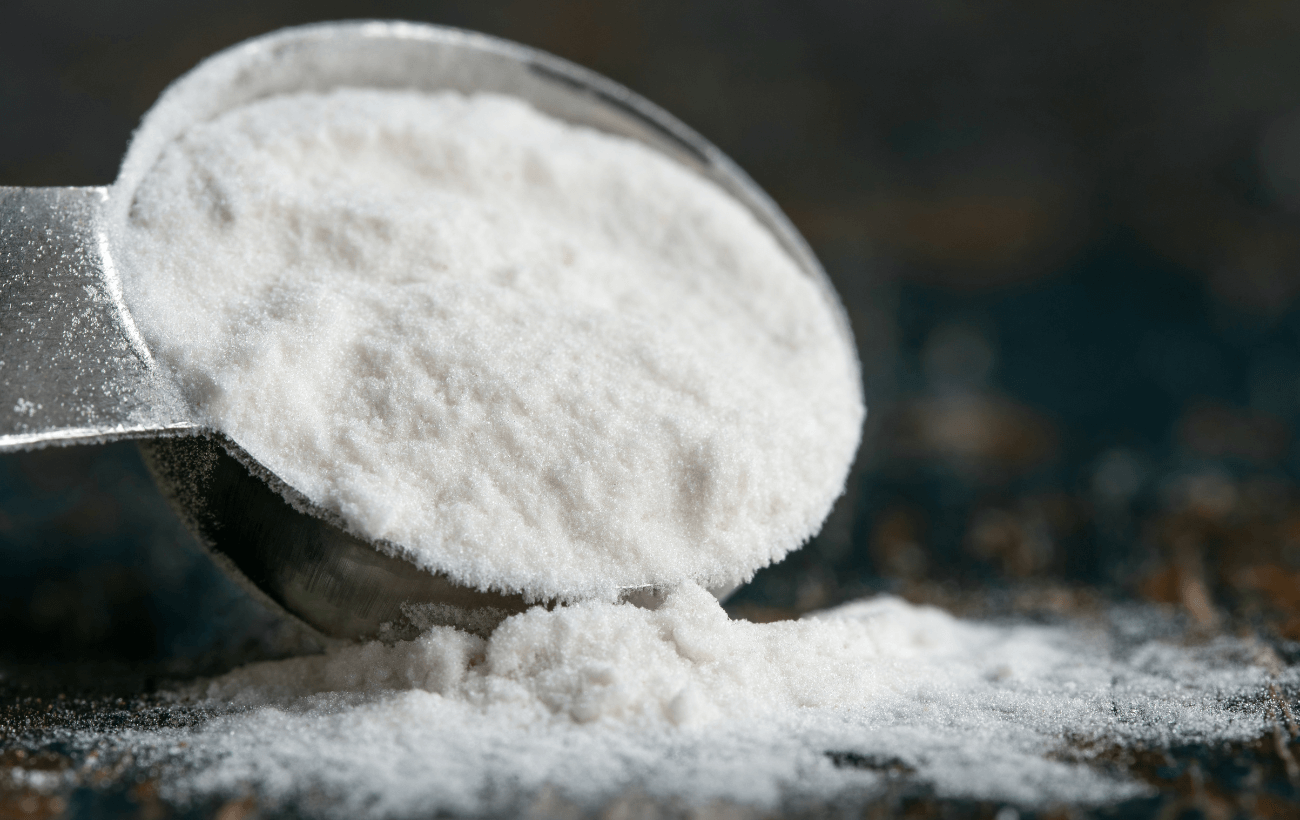
Creatine, often a subject of debate in fitness and health circles, has been extensively researched over the years. While its popularity among athletes and fitness enthusiasts is undisputed, it’s crucial to understand what scientific research reveals about creatine. This article dives into the depths of creatine research, shedding light on its benefits, safety, and efficacy.
Understanding Creatine’s Role in the Body
Creatine is a compound naturally produced by the body and found mainly in muscle cells. It’s synthesized from amino acids and plays a pivotal role in energy production, especially during high-intensity activities. Although creatine can be obtained through dietary sources like red meat and fish, the concentration in these foods is lower compared to supplementation. Creatine supplements typically come in the form of creatine monohydrate and are popular among those seeking to improve athletic performance, increase muscle mass, and enhance strength.
The Metabolic Function of Creatine
According to the Journal of the International Society of Sports Nutrition, creatine is involved in several critical processes in the body. It combines with a phosphate group to form phosphocreatine (PCr), which acts as a quick energy reserve in muscle cells, particularly useful during short, intense bursts of activity like sprinting or weightlifting. This mechanism is essential for maintaining a constant supply of ATP, the primary energy carrier in the body, during high-energy-demand situations.
Nearly 95% of the body’s creatine is stored in skeletal muscles, with the rest found in the brain, heart, and testes. The body’s total creatine pool (PCr plus free creatine) is about 120 mmol/kg of dry muscle mass, but can reach up to 160 mmol/kg in certain individuals. Daily, the body degrades about 1–2% of its intramuscular creatine into creatinine, a metabolic byproduct, which is then excreted in urine. This necessitates a daily replenishment of about 1–3 g of creatine, half of which is typically obtained from dietary sources like meat and fish. The rest is synthesized in the liver and kidneys from arginine, glycine, and methionine.
For vegetarians, who generally have lower intramuscular creatine stores, supplementation can be particularly beneficial, allowing for greater gains in muscle creatine content. Athletes involved in intense training may need 5–10 g/day of creatine to maintain optimal whole-body creatine stores, while clinical populations with certain health conditions might require higher doses (10–30 g/day) to derive therapeutic benefits.
Creatine’s role in the body is multifaceted, playing a key part in energy production and storage, muscle function, and overall athletic performance. Its ability to rapidly replenish ATP makes it invaluable for high-intensity exercise and muscle endurance, underlining its popularity as a supplement among athletes and fitness enthusiasts. This detailed understanding of creatine’s metabolic function highlights its crucial role in enhancing athletic performance and overall health.
The Science Behind Creatine
A comprehensive body of research has thoroughly investigated the effects of creatine on exercise performance and muscle health, underscoring its significant impact on enhancing physical abilities.
Enhanced Athletic Performance and Muscle Health
Numerous studies have consistently demonstrated that creatine supplementation leads to notable improvements in muscle strength, endurance, and overall athletic performance. This is especially pronounced in high-intensity activities like sprinting and weightlifting. For example, research published in the Journal of the International Society of Sports Nutrition emphasizes that creatine supplementation boosts muscle creatine and phosphocreatine (PCr) levels, enhancing acute exercise capacity and training adaptations across various age groups, including adolescents, younger adults, and older individuals. These adaptations allow athletes to perform more work over a series of sets or sprints, translating to greater gains in strength, muscle mass, and performance due to improved training quality.
Supporting Muscle Recovery and Reducing Injury Risks
Creatine also plays a vital role in enhancing muscle recovery and minimizing the risk of sports-related injuries. Research published in the same journal reports that creatine supplementation has been effective in reducing muscle damage and enhancing recovery from intense exercise. For example, studies have shown that participants supplemented with creatine exhibited significantly greater muscle strength during recovery from exercise-induced muscle damage and lower levels of plasma creatine kinase, a marker of muscle damage.
Additional Benefits in Various Sports Events
The ergogenic benefits of creatine supplementation have been recognized in a wide array of sports events. Creatine has been shown to increase single and repetitive sprint performance, enhance muscle mass and strength adaptations during training, and improve recovery, among other benefits. This makes it a recommended supplement for athletes involved in power, strength, and high-intensity intermittent sports, as well as those who require sustained aerobic endurance.
In conclusion, the scientific evidence strongly supports the efficacy of creatine supplementation in improving exercise performance, aiding muscle recovery, and reducing the risk of injury, making it a highly valuable supplement in the realm of sports and athletic training.
Creatine and Brain Health
Creatine is not only beneficial for physical performance but also has significant implications for brain health. Emerging research highlights its role in cognitive function and neurological health, particularly in older adults.
The Role of Creatine in Cognitive Function
Studies indicate that creatine supplementation can positively impact cognitive tasks, such as memory and reasoning. This is especially significant in older populations, where cognitive decline is a common concern. Creatine’s ability to increase phosphocreatine levels in the brain leads to improved energy availability, which is crucial for maintaining cognitive functions.
Evidence from Research
Research has consistently shown that creatine supplementation can enhance brain function. A notable study mentioned in the article from the Journal of the International Society of Sports Nutrition reports that creatine supplementation is associated with improved memory and intelligence tests requiring speed of processing. This indicates that creatine can play a role in enhancing cognitive performance, particularly in tasks that require quick thinking and problem-solving skills. This research aligns with other studies, reinforcing the notion that creatine is not just beneficial for physical performance but also plays a significant role in cognitive health.
Creatine’s Neuroprotective Properties
In addition to enhancing cognitive performance, creatine exhibits neuroprotective properties. This is particularly important in the context of neurodegenerative diseases and brain injuries. Studies have shown that creatine supplementation can offer protective benefits against neuronal damage and support overall brain health.
Implications for Aging and Neurological Health
The implications of creatine for aging and neurological health are significant. As individuals age, the natural decline in cognitive function can be a major concern. Creatine’s ability to support brain energy metabolism and protect against neuronal damage makes it a potential supplement for maintaining cognitive health in older adults.
In conclusion, the role of creatine in brain health extends beyond its well-known benefits for physical performance. Its impact on cognitive function, combined with its neuroprotective properties, underscores its potential as a supplement for enhancing neurological health and supporting cognitive function, especially in older adults.
Safety and Efficacy of Creatine Supplementation
Concerns about the safety of creatine, particularly regarding its impact on renal function, have been a topic of considerable debate. Initial case studies raised concerns about potential risks, especially in individuals with pre-existing kidney issues. However, a robust body of scientific research has since clarified these misunderstandings. Extensive studies, as reported in the Journal of the International Society of Sports Nutrition, involving diverse populations—from healthy individuals to those with clinical conditions—have consistently shown that creatine supplementation, even in high doses over extended periods, does not adversely affect kidney function.
These findings are crucial, especially considering the widespread use of creatine among various demographics. Long-term studies in athletes, individuals with type 2 diabetes, and patients with renal diseases have not shown any signs of renal dysfunction attributable to creatine use. Such comprehensive evidence underlines the safety of creatine across a broad spectrum of users, dispelling earlier concerns and reinforcing its position as a safe supplement for enhancing athletic performance and muscle growth.
Research Insights on Creatine and Kidney Health
The consistent findings across these studies, as highlighted in the ISSN journal, affirm that creatine supplementation does not adversely impact kidney health, even in populations initially considered at higher risk.
Creatine for All Ages
The effectiveness and safety of creatine supplementation extend across all age groups, a fact that is backed by numerous performance-related studies. Research involving adolescents, adults, and older individuals has consistently reported significant ergogenic benefits without notable side effects. This body of evidence supports the use of creatine monohydrate as a universally beneficial supplement, effective for improving high-intensity exercise capacity and increasing lean body mass during training, as highlighted by the International Society of Sports Nutrition (ISSN).
The ISSN, in its position stand, recognizes creatine monohydrate as the most effective ergogenic nutritional supplement currently available for these purposes. This endorsement is based on extensive scientific research and clinical trials, which have examined the effects of creatine across various demographics, exercise types, and health conditions. The ISSN’s position reflects a consensus in the sports nutrition community about the broad applicability and benefits of creatine supplementation.
Creatine’s Role in Youth and Elderly Populations
Particularly noteworthy is creatine’s role in supporting athletic performance and muscle health in both younger and older populations. In adolescents, creatine has been found to support growth and development, enhance strength, and improve performance in various sports. For older adults, creatine supplementation has been linked to the preservation of muscle mass, improvements in strength and endurance, and even cognitive benefits. These findings are critical as they demonstrate the versatile role of creatine in supporting health and fitness goals across the lifespan. This versatility of creatine, beneficial for both youth and the elderly, showcases its broad utility in supporting health and fitness goals throughout all stages of life.
The Official Position on Creatine Supplementation
The ISSN has officially stated that creatine monohydrate is not only safe but has therapeutic benefits in healthy and diseased populations, from infants to the elderly. They emphasize that there is no compelling scientific evidence that short- or long-term use of creatine monohydrate, even up to 30 grams per day for five years, poses any health risks to healthy individuals or clinical populations that might benefit from its supplementation.
Creatine: A Scientifically Backed Supplement with a Proven Track Record
In conclusion, creatine stands as a scientifically backed supplement with a proven track record for improving athletic performance, aiding muscle recovery, and enhancing cognitive functions. Its safety profile is well-established, making it a viable supplement for a wide range of individuals looking to improve their health and athletic performance. As with any supplement, it’s always recommended to consult with a healthcare professional, especially for those with pre-existing health conditions.
The overwhelming scientific consensus on creatine’s effectiveness and safety makes it a go-to supplement for those seeking to elevate their physical and cognitive performance.
Reference:
Journal of the International Society of Sports Nutrition, “International Society of Sports Nutrition position stand: safety and efficacy of creatine supplementation in exercise, sport, and medicine.”
Disclaimer: This information is presented for educational purposes only and is not intended as medical advice. Always consult with a healthcare professional before starting any new supplement regimen.




